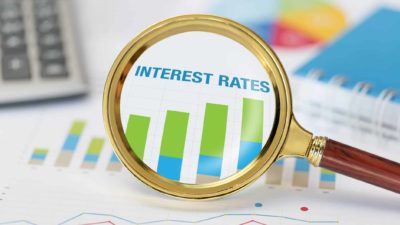It's no secret that the weeks since Donald Trump's second inauguration as President of the United States have been marked by a dramatic uptick in volatility in the global markets. And it's arguably thanks to Trump's tariffs.
US shares, and ASX shares by extension, have had a rollercoaster ride since 20 January. The US markets had initially reacted positively to Trump's election. Between the end of October 2024 and 19 February 2025, the flagship S&P 500 Index (SP: .INX) rose by a confident 7.7% and touched several new all-time record highs. But mid-February was when things started to get interesting.
That marked the point when Trump began implementing the long-promised but widely underestimated round of tariff hikes. Markets were initially stunned when the Trump administration revealed that two of America's closest trading partners – Mexico and Canada – would be hit with a 25% tariff on all imports into the United States. That was in addition to the less shocking additional 10% tariff on Chinese imports.
Ever since, the US markets, and thus global markets, have been seesawing in a manner that we haven't seen for years.
So why are Trump's tariffs causing so much volatility?
Trump's tariffs: What's behind the volatility?
In my view, there are two reasons why Trump's tariffs have sparked such instability in global markets.
The first reason is the nature of the tariffs themselves.
Most economists view tariffs as highly damaging economic taxes. These taxes used to be a core pillar of most countries' tax bases. However, their pervasiveness has been slowly whittled away since the 1970s, as most countries began to embrace free trade.
Tariffs might help protect domestic industries, particularly manufacturing. However, they also act as a market distortion, helping attract capital to uncompetitive or unproductive sectors of the economy at the expense of more efficient ones. There's a reason we don't manufacture cars, clothes, or televisions in Australia any more. It just makes sense for companies to make them in cheaper labour markets with larger customer bases.
As such, Trump's tariffs take from the many by increasing the costs of almost everything in the economy and give to the few by protecting select domestic industries. Most economists and companies, I suspect, know this and are reducing their growth projections for the US and global economy accordingly. In this light, it's no surprise to see the stock markets follow suit.
Secondly, Trump's haphazard implementation of his tariffs is also, in all likelihood, adding to the volatility that we've seen since mid-February.
Keeping the markets guessing…
It would be one thing if the administration announced one set of tariff plans that would be implemented in six months' time, let's say. It's another to announce 25% tariffs on Canada and Mexico to take effect within a week, subsequently extend that timeline, and then implement them again, only to reduce their scope after another week. At the same time, he revealed a 25% tariff on all steel and aluminium entering the United States, which has infamously not excluded Australia.
That's essentially what took place over the end of February and into March. Since then, Trump has made much of the 'Liberation Day' of 2 April. This is when his administration is set to implement 'reciprocal tariffs' on almost every other trading partner the United States has. We don't yet know what any of these tariffs might look like just yet. But it seems that we'll only have a day or two's notice before they go into effect.
Markets love certainty and tend to rise when investors feel they can make fairly accurate medium and long-term projections about economic growth and the health of the global economy.
Unfortunately, we all have to wade through the opposite situation right now. Given that Trump seems to thrive on keeping everyone, including the markets, guessing, no one should be shocked to see the levels of volatility we have seen over the past few weeks.
And we're only two months into Trump's four-year term. I think it's fair to say that uncertainty and volatility are things we are going to have to get used to.









